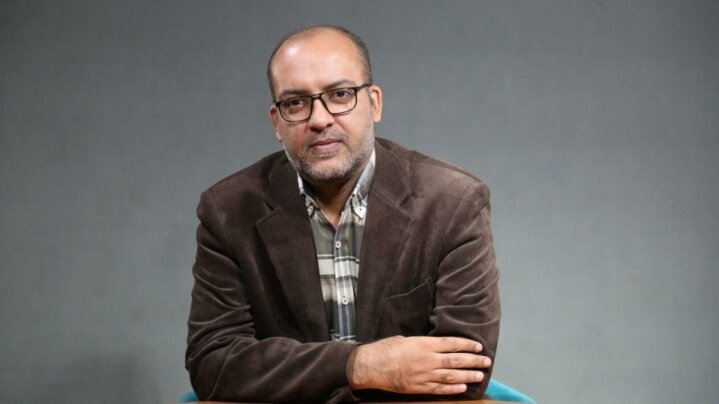TEHRAN – In an interview with the Tehran Times, human rights expert and scholar Dr. Heshamdin Bormand challenged the legitimacy of the UN’s special rapporteur and fact-finding mission against Iran, noting the politicized agenda and Western bias.
The full interview is as follows:
Despite repeated objections from Iran, the UN Human Rights Council has once again expanded its special rapporteur on Iran’s human rights duties, along with the so-called fact-finding mission. What do you think is the real purpose behind this continuation?
The very basis for appointing a special rapporteur on Iranian human rights, which began in 2011, will lose its legal and legal status. Iran was already actively collaborating on human rights issues through the UPR (Universal Regular Review) mechanism, providing documented answers to questions and doubts. Therefore, the appointment of the Special Rapporteur was completely political and biased. From 2011 to the present, four rapporteurs, Ahmed Shaheed, Asma Jahangir, Javaid Rehman and Mai Sato, acted on political motivations and human rights pressures against Iran. In fact, their collective reports are read like oral statements from counterrevolutionary forces.
The purpose of updating the mission of the special rapporteur is to keep pressure on Iran and human rights attacks alive. The so-called fact-finding mission has also been updated, so the goal is to work in conjunction with special reporters to implement biased human rights scenarios against Iran.
The current Special Rapporteur, Mai Sato, focuses on the death penalty without distinguishing between enforcement and “Qisas” (retaliatory justice). What is your response to this approach?
Her approach reflects the intentional continuation of the previous reporters’ flawed methods. She appears to be determined to portray Iran as a violent state and ignore the legal and religious distinction between executions and Qisas. Essentially, Iran is being accused of taking legal action against drug traffickers, murderers and those who have committed serious crimes against society. Under the human rights label, she defends individuals who have hurt public safety and violated the rights of others.
Unlike her predecessor, Sato has not come from a Muslim background. Do you think this is a change in the UN approach?
According to written guidelines, the previous three reporters were Muslims, but they were not committed to Islamic teaching. In his first report, Ahmed Shaheed accused Iran of violating inheritance laws, despite the succession being a ban on the Qur’an.
Sato doesn’t even have the appearance that the previous three reporters had. And clearly, she is placed in this role as a woman under the banner of the so-called “women, life, freedom” movement, making the story more reliable to public opinion.
It appears that women are important in both the special rapporteur team and the fact-finding mission. Do you think this is part of a broader strategy?
Yes, this is part of a calculated effort to frame the human rights narrative on the gender façade. The idea is to create the impression that we protect women’s rights while promoting a larger agenda. They are trying to turn the situation for Iranian women into a crisis, or “women’s problems,” and use it as a tool to interfere with Iran’s internal affairs. Behind this campaign is the western US countries that seek to undermine Iran’s traditional family structure, particularly in Iran. They intentionally circumvent the concept of family rights while promoting Western gender models.
The fact-finding mission accused Iran of creating a “environment of fear and systematic immunity.” How do you view these allegations?
The so-called fact-finding mission was created following Iran’s unrest in 2022 and is based on political and aimed at putting human rights pressure on the country. Everyone saw Netanyahu, a war criminal who committed genocide in Gaza, repeatedly supported the forged “women, life, freedom” movement. That alone showed which regime was behind the movement. Still, the United Nations has appointed a so-called fact-finding mission to investigate Iran.
Iran is targeting human rights issues, but the Western government is silent on the ongoing atrocities in Gaza. How can you publish this double standard?
The West has lost all credibility on human rights. Today, the collection of genocide and crimes taking place in Gaza is supported by the West and funded by the US.
The West is shamed today. Gaza is the crime scene for those who argue that they defend human rights, and Western stories about human rights no longer carry weight.
You said Iran is not passive when it comes to human rights accusations. What approach do you have in mind?
We must not remain passive on human rights issues. Iran must launch both defensive and offensive human rights efforts on a global scale. Today, Zionist regimes are being disparaged all over the world, and anti-Israel movements are growing day by day. Iran must disrupt the political and biased human rights game played by Western countries.
Specifically, our Ministry of Foreign Affairs and Human Rights Headquarters need to coordinate and define multiple programs and scenarios in the areas of human rights defense and rebuttal. The International Forum must change the false equation of Western human rights in favor of all those seeking oppressed freedom in the world.

